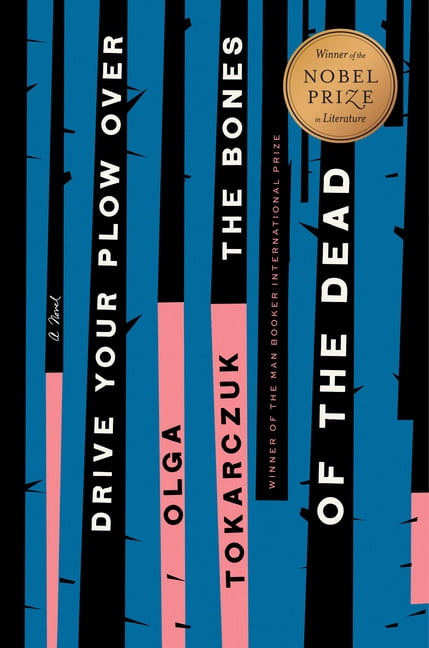

For example, in the Polish hamlet where Janina lives, shooting a boar is considered “hunting” on Feb 28 and “poaching” on March 1, but the emphasis on legal distinctions and land ownership serves to elide the only thing that ought to matter – the act of killing. As things stand, people cleave to supposed rationality as a defence against sad and frightening truths.

Janina is especially taken with Blake’s image of an Eden governed by the heart and intuition. (They’re about to embark on The Book of Urizen, having done Proverbs of Hell and the Songs of Innocence.)

(She considers her own name “scandalously wrong and unfair”.) This impatience with the divorce of language from reality – and, particularly, of names from their owners – recalls Plato’s dialogue Cratylus, but it’s only part of Janina’s larger crusade against complacency, and her preferred point of reference is William Blake, whose work she is translating with a former student she calls Dizzy.

The most immediate marker of the book’s thematic interests is that Janina, in her narration, rejects the use of “official names” in favour of “epithets that come to mind of their own accord the first time I see a Person” – Big Foot, Oddball. When one suggestion (“the stock exchange”) is deemed “silly,” a replacement is hard on its heels: “post-traumatic shock.”Īs the narrator Janina Duszejko, an ageing schoolteacher, puts it: “We tossed around ideas until we ran out of them.” But just as striking as the plenitude of factors is the unmistakable consensus, among Janina and her two friends, that the question is a meaningful one, and worth probing.ĭrive Your Plow Over the Bones of the Dead, which was first published in Poland in 2009, starts with the discovery of a corpse, and it isn’t long before another turns up, but the whodunit plot is used to investigate other kinds of connection and causation – “inquiry” in the broadest sense. The result, amusing, stimulating and intriguing, if at times a little dense, might be likened to Fargo as rewritten by Thomas Mann, or a WG Sebald version of The Mousetrap. Virtually all the disciplines are represented, from astrology (“Saturn”) to sociology (“television”), dietetics (“lack of lithium and magnesium”) to psychodynamics (“a toxic mother”). Olga Tokarczuk today received the Nobel Prize in Literature – and her latest thriller to be published in English is dazzlingly inventiveĪbout halfway through this fiercely intelligent thriller, a discussion about why some people are nasty or evil yields a torrent of possibilities.


 0 kommentar(er)
0 kommentar(er)
